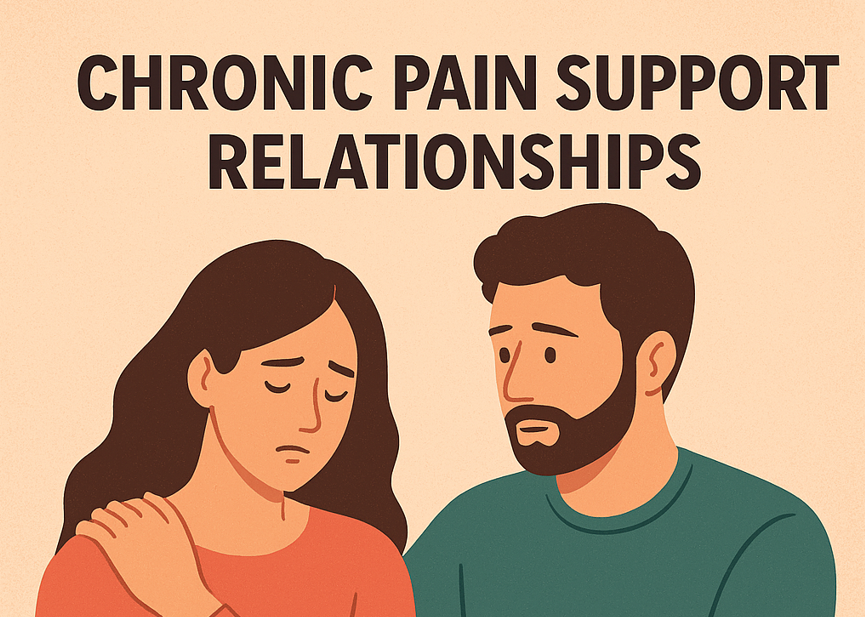Learn how couples navigate chronic pain together. Discover practical communication tips, emotional resilience strategies, real stories, and supportive networks for stronger relationships.

Understanding Chronic Pain in Relationships
Chronic pain is persistent, lasting three months or longer, and may stem from conditions such as fibromyalgia, arthritis, or neurological disorders. According to the National Institute of Neurological Disorders and Stroke, chronic pain can influence mood, energy levels, and social engagement.
In relationships, this can manifest as missed plans, fatigue impacting shared activities, emotional strain, or difficulty maintaining intimacy. Recognizing chronic pain as a medical condition, not a choice, is the first step toward empathy and collaboration.
Real Stories: Couples Navigating Chronic Pain
Emma & Jason – Communication and Flexibility
Emma has chronic fibromyalgia and often experiences fatigue and flare-ups. Jason initially felt hurt when plans were canceled. After attending couple’s counseling, they adopted flexible communication and low-intensity activities. Small wins became a source of connection and trust.
Lisa & David – Building Emotional Resilience Together
David manages chronic back pain, and Lisa struggled to balance caregiving and personal boundaries. They implemented shared routines and mindfulness exercises, creating mutual understanding and emotional resilience.
Practical Tips for Supporting Your Partner
- Prioritize Open Communication: Discuss pain levels, triggers, and coping strategies honestly.
- Adjust Shared Activities: Choose low-impact hobbies and balance structured vs spontaneous moments.
- Maintain Independence: Encourage self-care and share responsibilities fairly.
- Practice Emotional Resilience: Mindfulness, journaling, and celebrating progress reduce stress.
- Seek External Support: Join online communities or consider professional counseling.
External references: Mayo Clinic – Chronic Pain Support
Communication Strategies That Work
- Check-ins: Daily or weekly check-ins align energy levels and upcoming commitments.
- Active Listening: Reflect back what your partner shares, validating their feelings.
- Collaborative Problem-Solving: Plan solutions together for flare-ups, chores, or events.
Intimacy and Physical Connection
- Explore alternative ways to show affection (touch, verbal appreciation, quality time).
- Respect comfort levels and limits during pain flare-ups.
- Use adaptive strategies for sexual activity, including planning and pacing.
Online Support and Community Resources
Online communities provide education, empathy, and connection:
- BridgesMate Community – supportive space for singles and couples with disabilities
- Mayo Clinic Chronic Pain Support Forum
- American Chronic Pain Association
Internal links: Dating Someone with ADHD: Real Love & Growth, Autism Dating: Real Tips & Stories
Building a Strong, Resilient Relationship
- Mutual Empathy: Understand each other’s challenges without judgment.
- Practical Systems: Calendars, reminders, and routines reduce stress.
- Shared Goals: Focus on growth, intimacy, and well-being.
- Professional Guidance: Couples therapy or chronic pain coaching strengthens communication.
Conclusion
Chronic pain does not have to prevent love or happiness. Couples who communicate openly, plan thoughtfully, and support each other’s emotional and physical well-being can thrive together. Understanding, patience, and access to supportive resources make relationships resilient and deeply connected.
<

One Reply to “Chronic Pain Support Relationships – Build Love, Understanding, and Emotional Resilience”